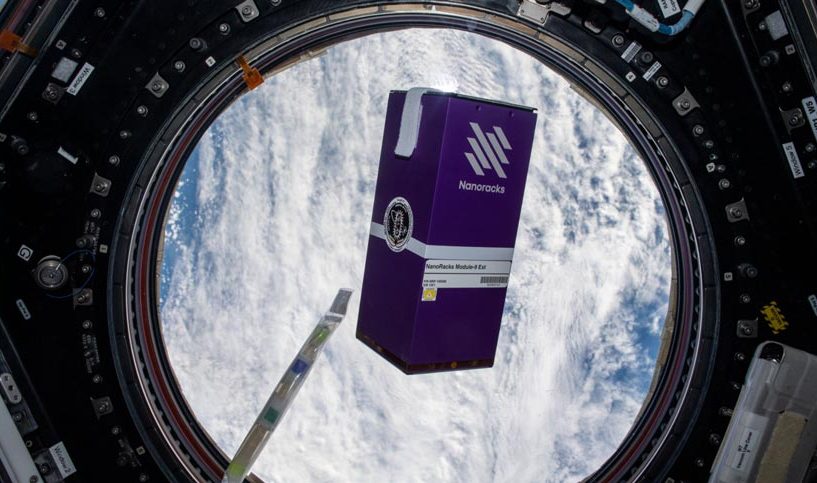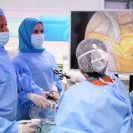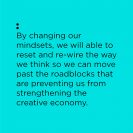While we’ve missed the aquarium and visiting the penguins and the various exciting exhibits at The Scientific Center, the team has been working tirelessly behind the scenes along with a group of focused and dedicated students to launch a special, first-time Kuwaiti experiment into space. Yup, real life space, the great beyond!
On Sunday, December 6th, 2020, SpaceX’s Falcon-9 rocket launched from the Kennedy Space Center in the US, carrying a payload containing an experiment conceived by students in Kuwait to astronauts aboard the ISS to conduct on the behalf of the students in space.
An initiative of The Scientific Center, which falls under the Kuwait Foundation For The Advancement of Science, the experiment marks a historic event that enhances Kuwait’s position and places it on the global space map. The Scientific Center celebrated the milestone by holding a private event to view the launch of the Falcon-9 into space.
Speaking during the event, Rana Al-Nibari, The Scientific Center General Manager, stated: “We are proud of the successful launch of the first Kuwaiti scientific experiment into space by our students, who have demonstrated their ability to succeed and persevere, continuing with their work even during this year’s challenging circumstances. Today we are pleased to celebrate this historic achievement.”
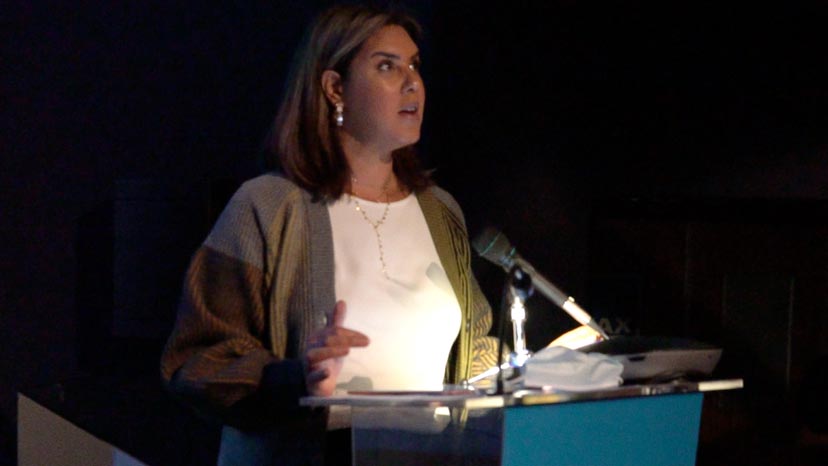
Conceived with the vision to support students and encourage their interest to delve deeper into the sciences, Al-Nibari continued to highlight that The Scientific Center “strives to always undertake such initiatives, based on our Vision to be a continuously adapting center for future innovators in science, and in our belief in the importance of science and its role in understanding our world and building a sustainable future for Kuwait.”
We were super intrigued to learn more about this experiment and why it was chosen, only to find out that the historic launch arrived from the result of the work of two remarkable students who were part of The American School of Kuwait’s 2019 graduating class and previously took part in The Scientific Center’s 2019 Space Month competition. Run in partnership with Orbital Space, the first company in the Arab World to provide access to space through CubeSat technology, the competition was open to students of all school levels, with the winner chosen by a panel of respected scientists and educators.
The winning team, students Omar Qamouriyeh and Malek Abdullah, was chosen for their idea’s feasibility as well as possible learning outcomes. They presented the objective of recording the effect of microgravity on the growth of E. coli bacteria, and its consumption of carbon dioxide.
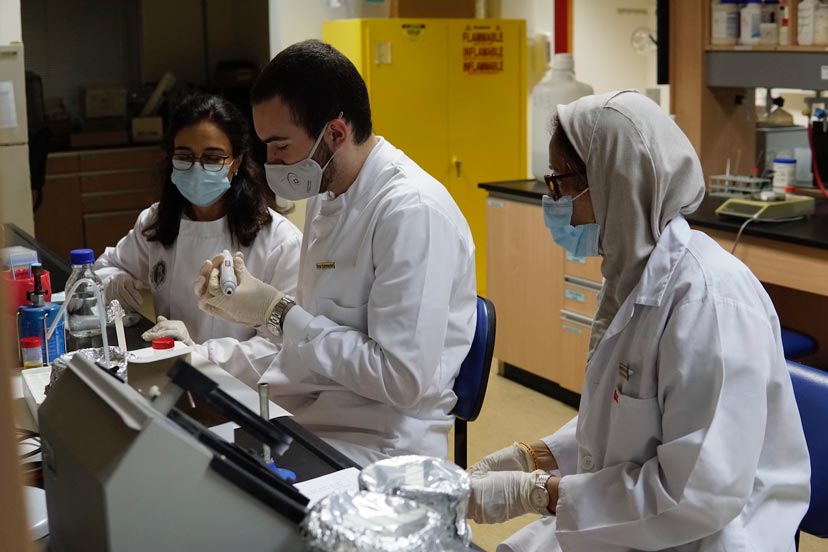
“This activity differs from other student competitions, as it includes a real journey to space,” Al-Nibari continued. “We have been excited about it at all stages, from the selection of the winning experiment, to the study and research phase, followed by the initial test-runs and data collection in Kuwait University laboratories, until where we have reached today, the launch of the experiment to the ISS. An entire year of effort has come together, and Omar and Malek have worked diligently, and we have been proud to be with them as they have moved step by step towards this goal.”
Al-Nibari recognized the challenges presented by the pandemic, but this didn’t hinder the student’s and project participants’ efforts at all. “The work did not stop and was continued to see it through to the end. Now we see the fruits of these efforts as we witness the launch, which thanks to everyone’s efforts has become a reality”.
It took almost an entire year to turn the experiment from dream to reality, with technical and logistical support from Orbital Space and Kuwait University, helping the students in all ways make this experiment a success.
Founder and General Manager of Orbital Space, Dr. Bassam AlFeeli, spoke on the event stating, “Space innovation is happening right now, and we are proud to support The Scientific Center in Kuwait in creating this opportunity to empower our youth and teach them the skills to be innovators in the space sector. As Kuwait’s first experiment in space launches to the International Space Station, we are thrilled to have ignited the passion in these students. This experiment launches not only their dreams, but also that of Kuwait as a nation, into the space sector.”
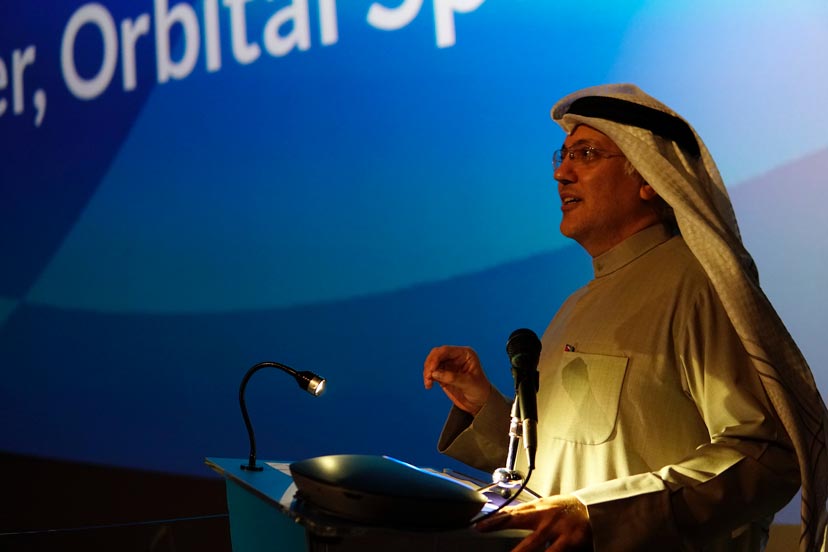
This sentiment is deeply echoed by Nada AlShammari, Director of Education and Outreach at Orbital Space, who stated, “As pioneers in space-based educational programs in Kuwait, we are excited to create opportunities and award-winning space initiatives enabling our youth to explore space technology, research and leadership. We are encouraged by the marvelous impact that Kuwait’s first experiment in space has had on our young innovators and future explorers, and we are continuing to offer more opportunities in space engagement and missions to youth in Kuwait and the region.”
From Kuwait, the story takes us to the US Space Agency (NASA) and other international companies specialized in the field of space science to deliver the payload and realize the students’ dream, providing all the required equipment and creating a suitable environment for them. DreamUp, one of the international partners who helped aid in the delivery of the experiment, played a crucial role in the success of the project, and it was the student’s efforts which deeply moved them to participate.
DreamUp’s Director of Programs, Lauren Milord, spoke on their dedication, “DreamUp is incredibly proud to support the students who launched the very first Kuwaiti payload to the International Space Station today. Not only have these students made history, they have demonstrated incredible tenacity, adaptability, and persistence as they remained on schedule for launch despite the challenges of the COVID-19 pandemic. We congratulate them, as well as their mentors and the organizations who have supported them through this journey. We will be watching to see what’s next for the E. coli C5 team.”
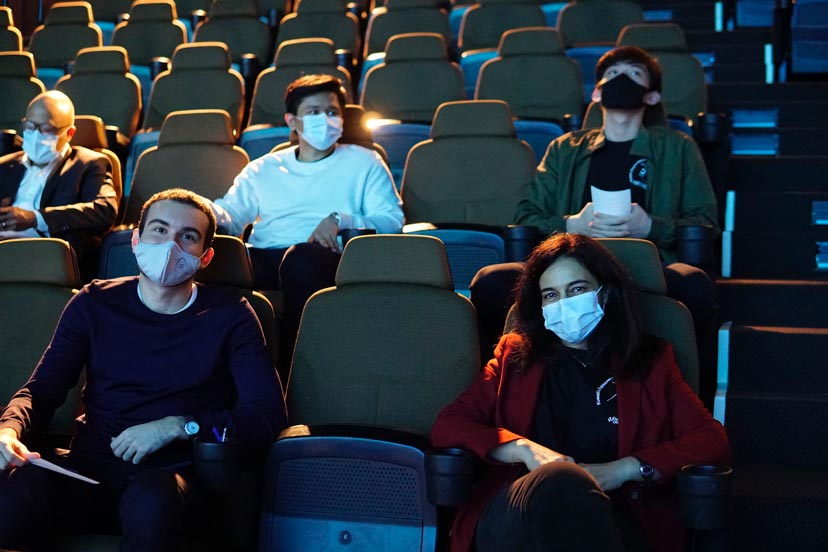
Based in Washington, DC, DreamUp is the first company bringing space into the classroom and the classroom into space. Uniquely positioned to inspire kids globally and engage them through scientific discoveries in space, DreamUp aims to foster an educational community where space- based research and projects will be available to all learners of all ages.
DreamUp has a proven track record with more than 400 student research payloads from around the world launched on SpaceX and Northrop Grumman rockets to the International Space Station via a partnership with Nanoracks and its Space Act Agreement with NASA.
By November 13th, 2020, the final preparations for the experiment were well underway at the laboratories of the College of Medical Sciences at Kuwait University. This process took place over four months, and the experiment was set to be shipped to the United States of America to make arrangements for the highly anticipated launch to the International Space Station.
This is where logistics played a key role in making the dream come true. Jack Muhs, Regional President of FedEx Express Middle East, Indian Subcontinent and Africa, the chosen logistical partner to deliver the experiment, said: “We’re excited to carry this potentially game-changing package, and support the student’s scientific research. Thank you to The Scientific Center of Kuwait for trusting us with a shipment and program that is literally out of this world! Like FedEx, you value empowering the next generation to explore and bring positive change.”
Speaking during the launch event at The Scientific Center, U.S. Embassy Deputy Chief of Mission Larry Memmott highlighted the Embassy’s work to strengthen U.S.-Kuwait scientific cooperation. “In addition to professional development and academic exchange programs for Kuwaiti students and researchers, we bring American scientific experts to Kuwait to share expertise and inspire students to pursue careers in science. We look forward to broadening our partnerships with Kuwaiti institutions to help spur future space-based research coming from Kuwait.”
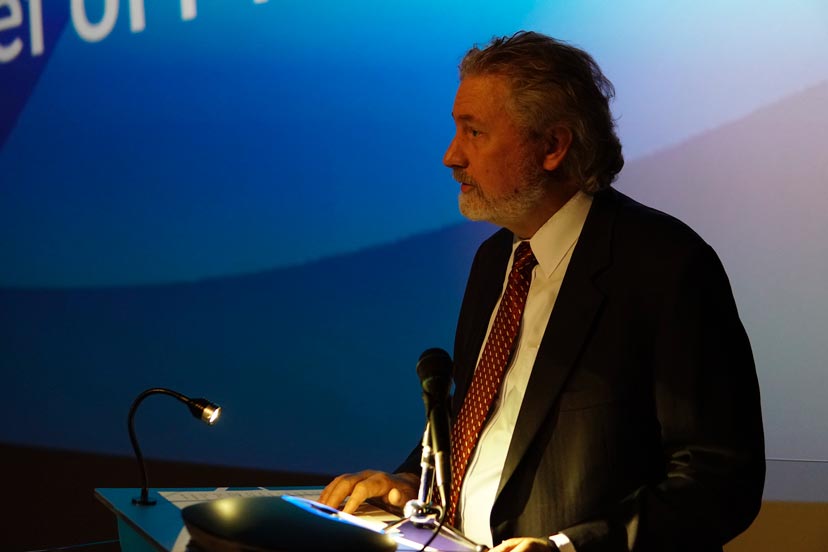
Al-Nibari confirmed that this is not the first initiative adopted by the Scientific Center to promote space science or to cooperate with the International Space Station, but it is the most distinguished. It came as a continuation of the Center’s march in strengthening Kuwait’s position in the field of space science internationally. Since the Center’s opening in 2000, and on the occasion of the establishment of the region’s first IMAX Theater, the flag of Kuwait was raised at the ISS during the filming of the 2002 3D film “Space Station”. In 2006, the Center organized an internationally acclaimed event from those locally interested in space culture, where students and outer space enthusiasts had the opportunity to speak to astronauts on the ISS.
In 2018, on the occasion of World Space Week, the Scientific Center organized a month-long celebration of space, which included special offers and educational activities for all ages, as well as an exclusive talk with Emirati student Alia AlMansoori, who like the students celebrated today, had her own experiment sent to the ISS.
In 2019, the Scientific Center continued the Space Month event, in line with the occasion of the 50th anniversary of the establishment of the Umm Al- Aish station, the first terrestrial space station in the Middle East, which was located in Kuwait.
Concluding the event, Al-Nibari thanked all the parties involved in achieving this milestone. “We thank all the parties and individuals who participated with us in completing this experiment, headed by Orbital Space, which had the greatest role in financing and managing the experiment, coordinating between the students and other parties, and was the link between the Scientific Center and the International Space Station. We also thank Kuwait University, which opened the laboratories of the College of Medical Sciences for us to conduct the initial experiments under the supervision of Professor of Microbiology, Dr. Leila Vali.
I extend my sincere thanks to Ambassador Alina L. Romanowski, the Ambassador of the United States of America to the State of Kuwait, who worked hard to facilitate the movement of the experiment between our borders. We also thank FedEx, which transported the experiment from Kuwait to the United States of America and Dream Up for providing the equipment required to transport and conduct the experiment on board the International Space Station.”
For more information, check out The Scientific Center on Instagram @Scicenterkw and visit tsck.com.

